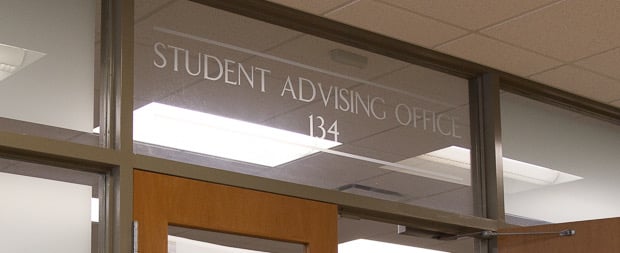Still Waiting for A State Budget
Students, educators, and administrators, who had hoped that the start of the 2025-26 school year would be enough to catalyze the completion of a state budget, were left disappointed in August. On the one hand, in the month’s final days, the Republican-led Michigan House advanced the budget process by passing their “$78.5 billion state” framework via HB 4706 in a near-party-line vote of 59-45-6 (WWMT). While this body had previously passed “its education budgets...months earlier,” the Democratic-controlled Michigan Senate and Governor Whitmer had been waiting for the state House to share their omnibus budget, covering all functions of government, before digging into negotiations over how to reconcile their divergent visions (Michigan Advance; June 2025 Capitol Perspectives). As such, the Michigan House’s approval of HB 4706 helped “mov[e] negotiations into the next phase before a potential government shutdown on Oct. 1” (ClickOnDetroit).
On the other hand, and less positively, the content of the Michigan House’s proposal revealed the extent to which state leaders disagree. Visible at the highest level of analysis, the Michigan House’s budget came with “a whopping $6.1 billion” difference in overall spending compared to the Michigan Senate’s $84.6 billion proposal from May (Michigan Advance). Furthermore, this disunity over total expenditures, “causing friction across party lines,” has been accentuated by specific policy disagreements (WILX 10). For example, the House’s approach to the School Aid Fund is unique from the Senate’s and Governor Whitmer’s in “consolidat[ing]” line items “for numerous important programs,” such as free school meals, and instead allocating districts a chunk of money per student with “autonomy to make the decisions of what to spend it on” (WWMT). This gap and others between Governor Whitmer's executive budget proposal, the Michigan Senate’s vision for schools in SB 166, the Michigan House’s K-12 framework in HB 4577, and the Michigan House’s March budget back-up plan in HB 4162 to fund “bare bones” necessities in the case of a government shutdown are meaningful (June 2025 Capitol Perspectives; Chalkbeat Detroit; MASA 3/7 Legislative Update). Lastly, Michigan Democrats have expressed frustration over how the House Republicans revealed their proposal, opting to make “the 808 page budget...publicly available around 30 minutes before the vote took place” (Michigan Public Radio). Along the way, Michigan Republicans across the aisle have “accused the Senate of playing politics and argued its budget proposal is outdated since revenue estimates have decreased with new federal policies” (WEMU). Ultimately, even with the Michigan House’s action on HB 4706, it is abundantly clear that they and the Senate remain “far apart in their proposals for funding schools,” almost two months after “the statutory July 1 deadline for signing a budget into law” (Chalkbeat Detroit; Bridge).
Throughout August, district leaders and education advocates made clear that they are far from okay with the delay. Case in point, a collection of Michigan superintendents published an opinion piece in The Detroit News, which claimed that this year’s budget process has “been a stain on our state’s legislative process” and prevented administrators from focusing on “filling open positions and ensuring every support is available.” Additionally, they critiqued “lawmakers from both sides of the aisle [who] have tried tying the education budget to a new road funding plan” based on a fear that this approach could “use our schools...as a piggy bank” (The Detroit News). Notably, these comments matched the theme and tone of a July statement from a coalition of education associations, along with a past “roundtable news conference” from them, which focused on “the real-time impact to Michigan schools while they wait for a budget deal,” including possible “layoffs and reductions in school services,” course cancellations, larger class sizes, and decreased programming (Michigan Advance; July 2025 Capitol Perspectives).
Also placing pressure on state lawmakers to complete the budget, this month saw a variety of news stories noting some material impacts of the budget delay. For one, these reports discussed schools adopting a more austere approach to staffing, given the lack of “clarity from the state on school funding,” federal funding cuts, and broader economic trends (Bridge). Specifically, an August study from the Michigan School Business Officials found that “11% of districts...had classroom personnel layoffs,” “15% had non-classroom personnel layoffs,” “42% cut staff through attrition,” “27% made non-staff spending cuts,” and various other entities delayed “building maintenance, increas[ed] workloads for staff and increas[ed] class sizes” (Bridge). Second, numerous commentators flagged the possibility of free school meals becoming “a potential casualty of [this] budget stalemate” (Chalkbeat Detroit). While state funding for this program continues until September 30 and “districts are being urged to continue providing the free meals at least until that date,” some localities are already reducing their offerings or sharing contingency plans if the program goes unfunded (Chalkbeat Detroit). For instance, “Okemos Public Schools notified parents...that it will no longer be providing free meals because of the budget stalemate” (Chalkbeat Detroit; WLNS 6). Further, other districts have struggled to commit to school meals after October 1, even if the Michigan Legislature were to quickly finalize a budget, given the possibility of the Michigan House’s approach being enacted, with the school meals line item being replaced by a lump-sum, per-pupil payment. Representatively, one district leader noted that they would need to “evaluate [their] ability to support free meals for all students with General Fund dollars” (Fox 17). In response to these headlines, State Superintendent Michael Rice released a memo that warned districts against “making too quick a decision regarding...participation [in state and federal programs supporting free school meals], as the United States Department of Agriculture...has made clear that...changes cannot be reversed within the same school year.” Whether districts are willing to risk providing an unfunded program remains to be seen.
More broadly, hoping to calm constituents, other state leaders have suggested additional patience from districts. Emblematically, House Speaker Matt Hall (R – Richland Township) said many superintendents and school boards are making “crazy decisions” to cut staff preemptively, commenting that “all parties [want] to increase...funding” (Bridge). Despite his intentions, Speaker Hall’s advice did not appear to assuage administrators’ concerns. Illustratively, at the end of August, a collection of education associations released an additional call for “state lawmakers to fulfill their most basic responsibility: passing a school budget,” which explained that because “superintendents cannot simply assume that funding will ‘work itself out,’” they “are left with no choice but to make tough, often painful decisions now to protect...long-term stability.” Additionally, the communique noted that “it’s difficult to take [state leaders’] assurances at face value when the Legislature has already failed to meet its statutory obligation” to finalize a School Aid Fund by July 1 (MASB).
Overall, the state budget picture feels bleak. Of note, though, State Budget Director Jen Flood has claimed that she is “optimistic that we’re going to get a budget deal” and that Governor Whitmer’s office is “in constant communication with...both chambers” (Bridge). With that, situating this year’s process in the context of previous ones, “it’s not the first time the school year has begun without a state budget,” and the last time Michigan experienced a government shutdown due to funding in 2007, it “lasted only four hours” (Chalkbeat Detroit; ClickOnDetroit). Nonetheless, there are deep divides between Michigan Republicans in the House and Democrats in the Senate, and the stakes of getting to October 1 without a budget are significant. In addition to the effects already being felt, if lawmakers cannot come to terms on school funding, districts will “have to start dipping into [their] reserves to fill the gap, to keep everyone employed, and to keep student programming” (Chalkbeat Detroit). How long they can do so varies meaningfully by district and local context.
Exploring Federal Education Policy Developments
Generally speaking, the last few months in D.C. have revolved around the Trump administration working “to...make big changes” in K-12 education (PBS News). As much as past editions of Capitol Perspectives (July 2025, June 2025, May 2025, April 2025, March 2025, February 2025, and January 2025) have tried to keep readers up to date with federal education policy’s evolving state, the changes’ pace has been dizzying, and their exact status has been muddied by constant reversals, court orders, appeals, and local and state resistance. In the hopes of catching readers up at the start of the new school year, this edition of Capitol Perspectives reviews the many effects of the Trump administration’s federal education policy shifts hitherto and previews the significance of two just-announced decisions.
Concerning past federal changes to K-12 education, copious columnists reporting on schools’ August reopening noted how “fears about...Trump administration actions...have further fueled uncertainty” in districts (Chalkbeat Detroit). In particular, this discussion of newfound precariousness has focused on four areas. First, when it comes to curriculum and pedagogy, while “federal law prohibits the federal government from controlling a public school’s...instruction, staffing, or text materials,” the Trump administration has utilized executive orders, changes to departments’ guidance, and conditional funding threats to shape “how public schools discuss diversity, equity, inclusion, and accessibility (DEIA) and gender identity” (Center for American Progress). Over the last few months, these culture war issues have dominated the news and indirectly influenced what is taught in K-12 schools and how it is addressed. Second, regarding school choice, President Trump previously both “signed an executive order directing the Department of Education to issue guidance on how states can use federal public education funds to support private school choice programs” and secured the passage of “the Educational Choice for Children Act” in the “One Big, Beautiful Bill Act,” which creates “the country’s first federal private school voucher program” (Center for American Progress). Going into the 2025-26 academic year, the key question is which states will opt to participate in this new system (The New York Times; July 2025 Capitol Perspectives; June 2025 Capitol Perspectives). Third, in the last few months, “massive layoffs at the U.S. Department of Education,” which have been greenlit by the U.S. Supreme Court, have impacted this entity’s day-to-day relationship with schools (Chalkbeat Detroit; July 2025 Capitol Perspectives). Specifically, the Trump administration’s reduction-in-force effort has placed “parents who filed federal civil rights complaints against their local districts...in limbo” and resulted in “fewer staff to ensure robust upkeep of...accountability systems” (Chalkbeat Detroit; Center for American Progress). Finally, the Trump administration has injected uncertainty into school funding after having “rescinded or frozen [even if only temporarily] more than $10 billion in support for K-12 education,” as described in the July 2025 Capitol Perspectives (Center for American Progress).
In addition to these past actions, along with responses to them from a variety of actors who have sometimes backed the Trump administration and in other cases pushed back, there have been new efforts to monitor. For one, in August, the U.S. Department of Health and Human Services (HHS) “demanded that 46 states and territories [including Michigan] remove all references to gender ideology in their federally-funded Personal Responsibility Education Program (PREP) educational materials within 60 days” (HHS). The federal government seems particularly concerned about sections of Michigan content in these “sexual education classes” that discuss “sharing pronouns,” “diversity and differences,” and the nature of sex and gender (ARC West Michigan). Previously, federal leaders “terminated California's PREP grant after not complying with the same order to remove gender ideology from their program's educational materials” (ARC West Michigan). In announcing the policy, HHS said it was needed to ensure that “federal funds [are] not...used to poison the minds of the next generation or advance dangerous ideological agendas” and to ensure that the use of these resources “reflects the intent of Congress” (The Guardian). Alternatively, folks concerned with the change worry that it is another “move by [President] Trump to remove federal recognition of trans people” and that young people who benefit from the programming could be in the crosshairs of this culture wars debate (The Guardian).
Second, this month, “the U.S. Education Department...rescinded critical guidance to schools regarding how they provide English language learning services for roughly 5 million students” (ABC News). In defending the decision to remove their guidance on the necessity of “providing adequate resources to...students under Title VI of the 1964 Civil Rights Act,” the U.S. Department of Education argued the move was vital to end an “overly prescriptive” approach that “micro-managed states” (ABC News). Relatedly, “Attorney General Pam Bondi [previously] cited case law that says treating people, including students, who aren’t proficient in English differently does not on its face amount to discrimination based on national origin” (The Washington Post). Critics of the shift worry that “schools will stop offering assistance [to English learners] if the federal government quits enforcing the laws that require it” and that the move is part of “a broader push...to remove multilingual services from federal agencies across the board,” make “English the country’s ‘official language,’” and increase the “targeting [of] immigrants” (The Washington Post).
So early in the emergence of these new controversies, and still working to monitor executive actions dating back to January, readers are invited to utilize the Education Executive Action Tracker from the University Council for Educational Administration, which “provide[s] an overview of executive actions and their implications,” the Litigation Tracker from Just Security that covers the extensive lawsuits surrounding President Trump’s actions, and the Michigan Association of Superintendents & Administrators’ clearinghouse of “Federal Updates & Resources for School Leaders” to help stay on top of what is coming from the nation’s capital. Of course, Capitol Perspectives will also continue to provide salient monthly updates on federal education policy.
Introducing Michigan's New State Superintendent
To conclude August, the Michigan State Board of Education selected the new State Superintendent of Public Instruction in a 5-3 vote (Chalkbeat Detroit; MASA 8/26). Following this development, Dr. Glenn Maleyko, the current superintendent of Dearborn Public Schools, is set to “take over from” Dr. Michael Rice “who announced earlier this year that he is retiring effective Oct. 3” (Chalkbeat Detroit). Ultimately, the selection came after the State Board considered “a list of 33 applicants, seven interviewees and eventually three finalists” (CBS News). In the role, Dr. Maleyko would serve as “the state's top education official” and oversee the Michigan Department of Education (The Detroit Free Press).
The selection comes at a time when “improving Michigan schools is a top priority at the state level” and in the face of intense “criticism over...lackluster student performance on state and national exams” (Chalkbeat Detroit; Chalkbeat Detroit). It also arrives after months of researchers, education stakeholders, and policymakers debating how education governance should be structured in Michigan (July 2025, June 2025, April 2025, March 2025 Capitol Perspectives). In support of the selection, Dr. Tina Kerr, MASA Executive Director, commented that “Dr. Maleyko has been a trusted colleague and leader” who has shown “dedication, integrity, and expertise” in successfully guiding Dearborn Public Schools, advocating for Michigan students “in policy discussions in Lansing and Washington D.C.,” and engaging with community organizations (MASA 8/26). The board members who supported him added that Dr. Maleyko has displayed strong rapport with the students and families he previously served in Dearborn, is well-positioned to help “move the state forward on literacy, especially with newly passed laws around the science of reading,” and has shown a keen ability to engage with the many “players” who influence education policy (The Detroit News). Conversely, Dr. Maleyko did not receive the support of “Republican board members Tom McMillin and Nikki Snyder as well as Mitchell Robinson, an Okemos Democrat” (The Detroit News). For their part, the two Republicans on the State Board of Education “continued to express frustration with the process and the slate of final candidates” (The Detroit News).
Concerning what to expect as the state transitions past State Superintendent Rice’s tenure, the Michigan State Board of Education “will discuss the superintendent selection at a Sept. 9 meeting, when their search firm will provide an update on contract negotiations” (Chalkbeat Detroit). Assuming those pieces and a final vote for Dr. Maleyko go off without a hitch, Michigan's new education leader has said he will prioritize “listen[ing] to the voices of students and their families,” advancing “the goals in Michigan's Top 10 Strategic Education Plan,” and “improv[ing] literacy achievement” (The Detroit News). As his leadership begins, Dr. Maleyko will surely be asked to weigh in on a host of education policy controversies that shape the monthly editions of Capitol Perspectives.
For questions or more information, please contact Tyler Thur in the Office of K-12 Outreach at thurtyle@msu.edu.




